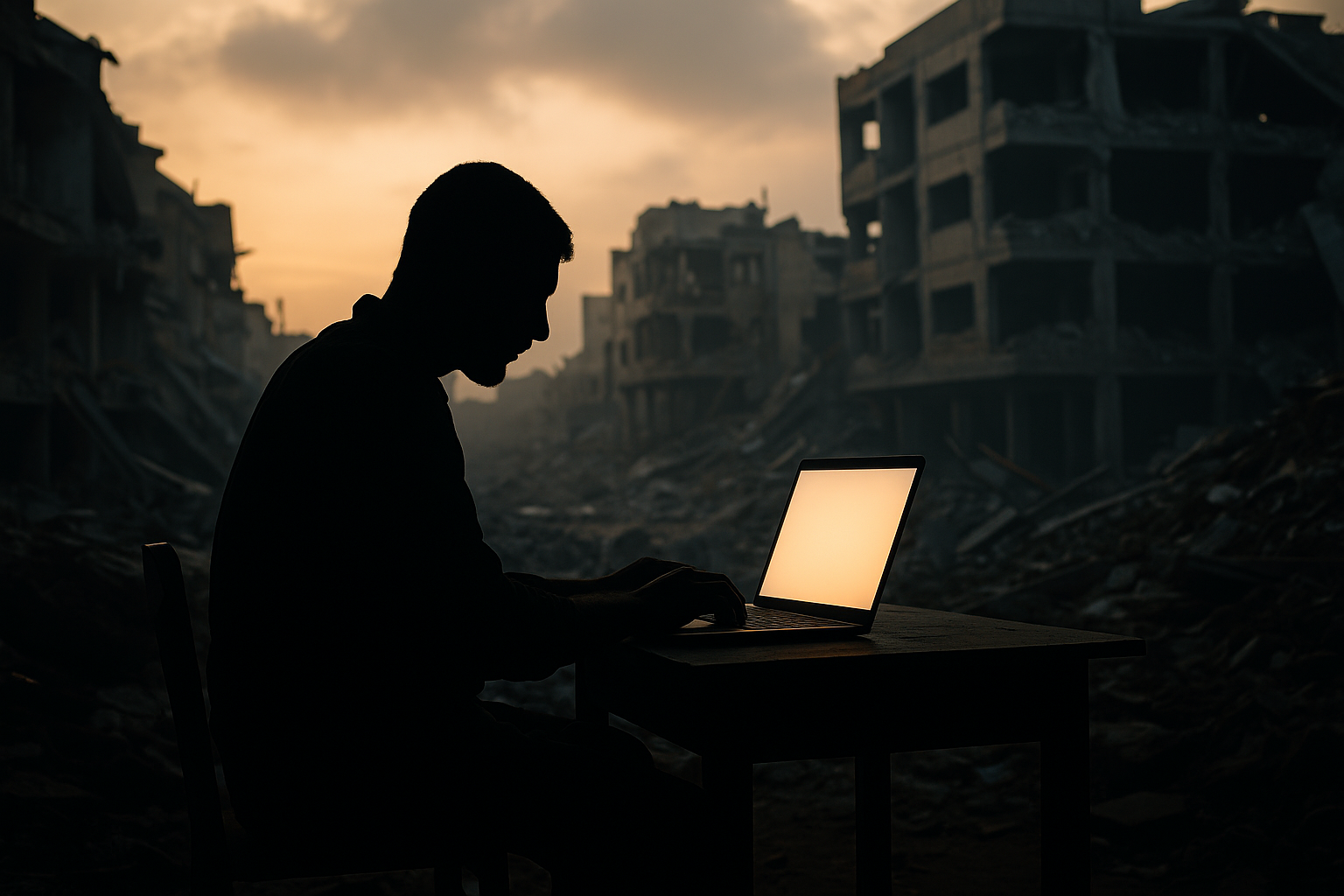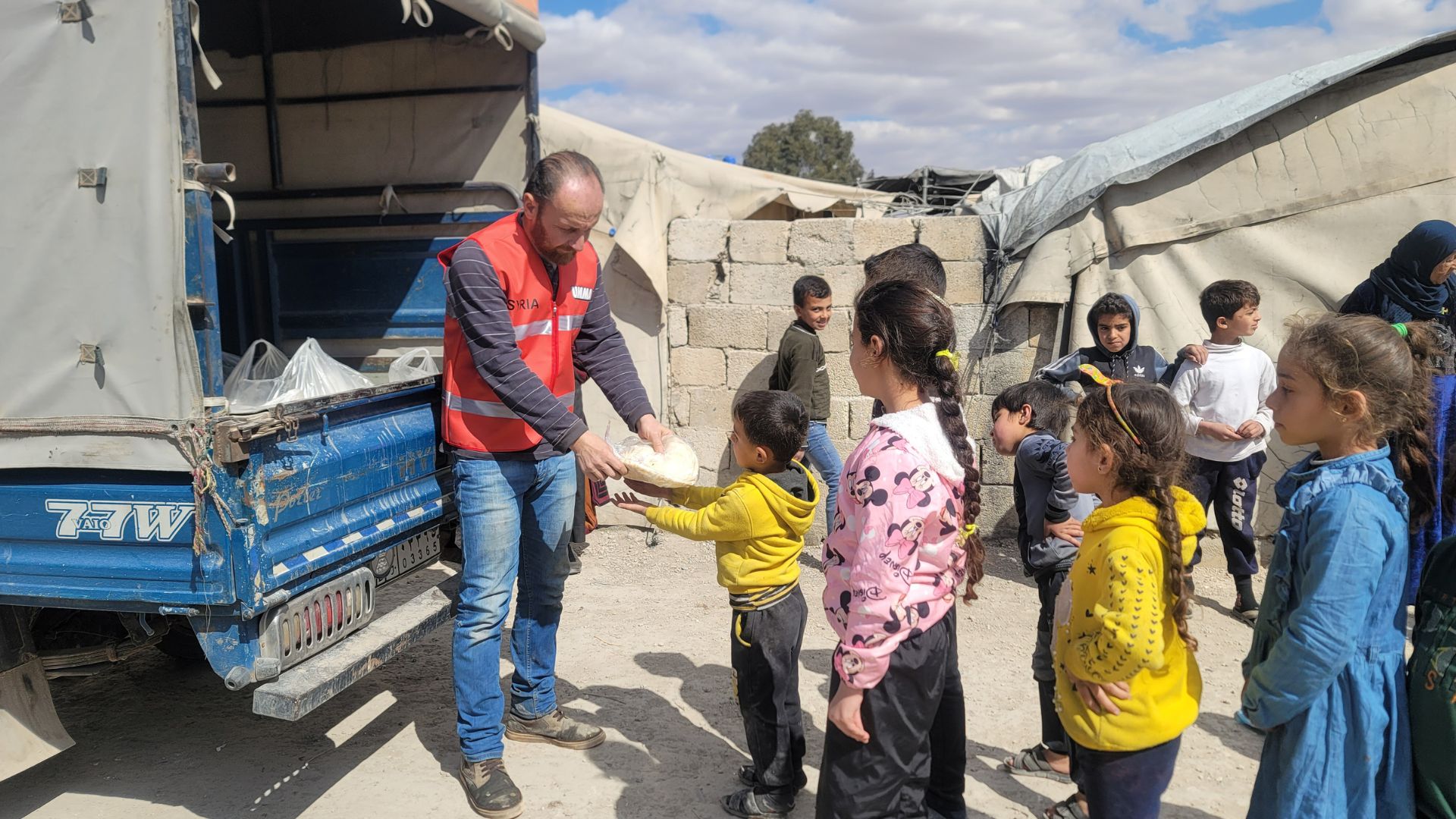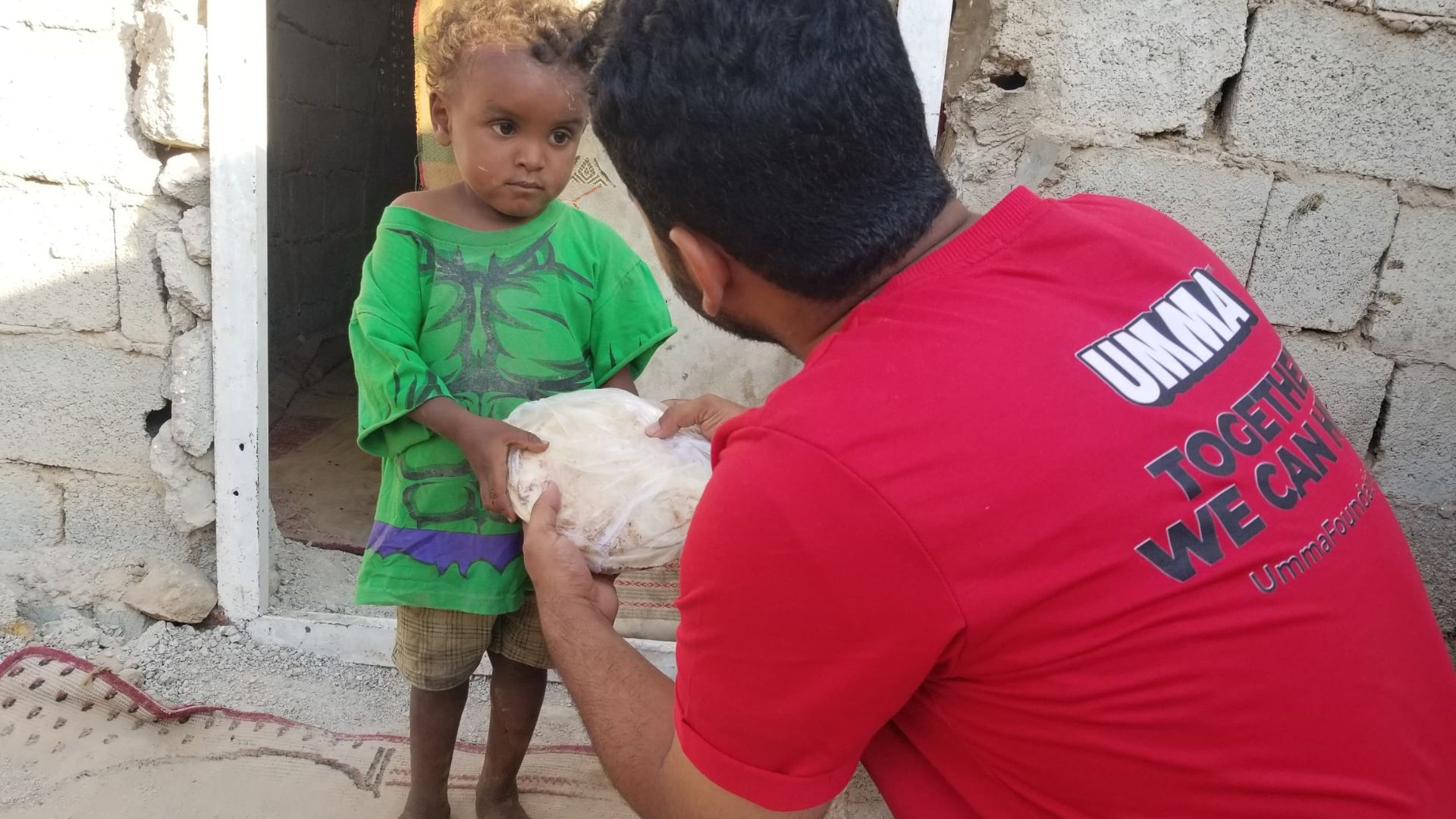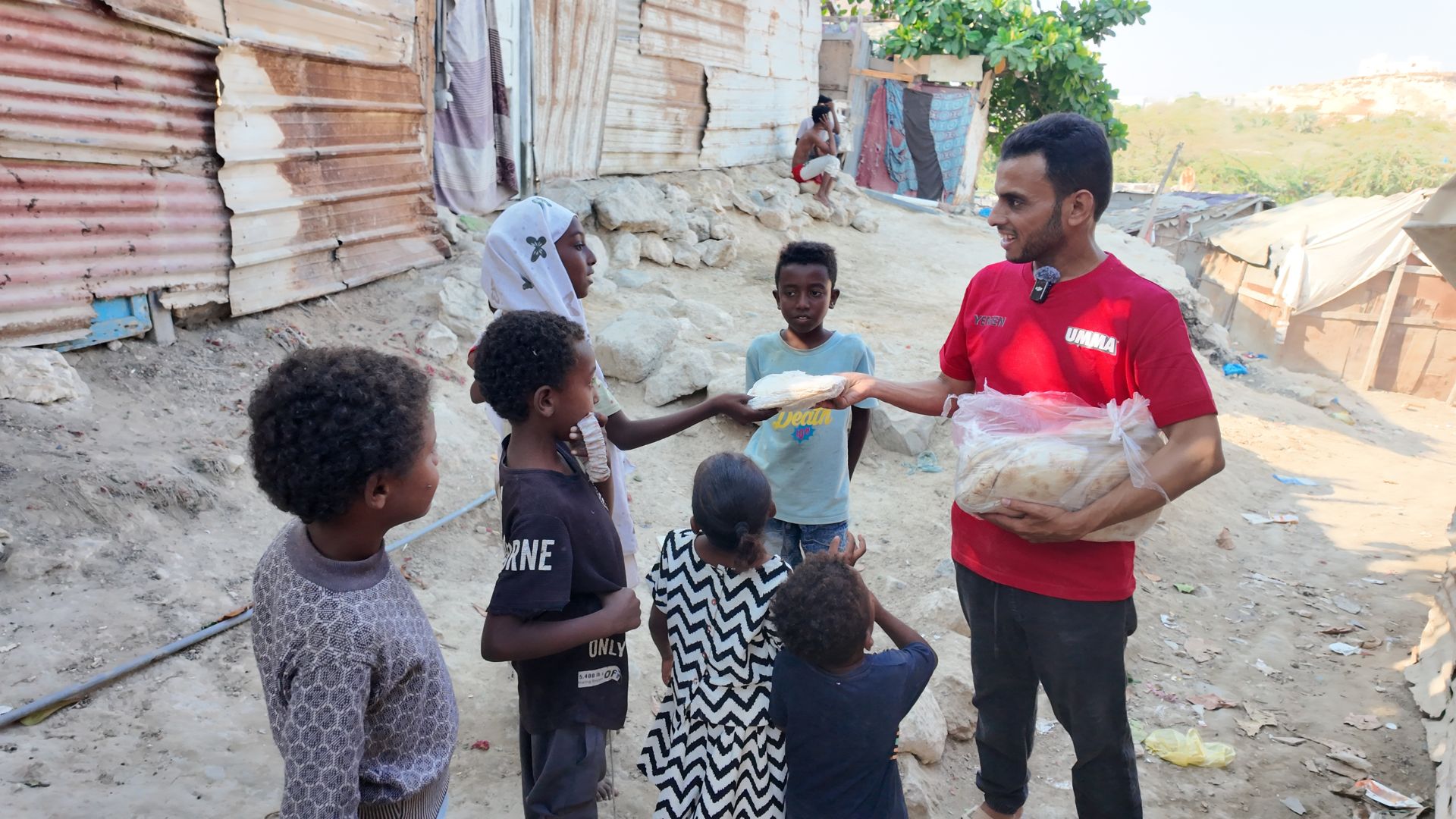In the midst of blockade, conflict, and economic collapse in Gaza, a quiet revolution is underway. Young men and women are turning to freelancing and remote work — not just as a side hustle, but as lifelines for survival, dignity, and resistance. This article explores how Gazan freelancers work under the most extreme constraints, the challenges they face, and what support is needed to help them thrive.
Why Freelancing Is Critical in Gaza’s Economy Collapse
Exceptionally High Unemployment & Blockade Constraints
- In late 2024, the Palestinian Central Bureau of Statistics reported that unemployment in Gaza soared to 68% (up from ~45% previously). una-oic.org
- The recent World Bank / Palestinian Economic Update lists that over 201,000 jobs were lost in Gaza by January 2024. The World Bank Docs+1
- Gaza’s overall economy has contracted severely: the World Bank estimates an 83% drop in 2024 relative to prior output. World Bank
- Movement and access restrictions make traditional employment nearly impossible for many, especially in affected neighborhoods and border areas. World Bank+1
In such a context, freelancing and remote work become among the few viable income options for Gazans who still have access to internet and devices.
How Freelancers Operate Under Blockade
Platforms, Earnings & Acceleration Programs
- The Upwork & Gaza Sky Geeks partnership is often cited: full-time freelancers in Gaza, after participating in training, reportedly earned US$1,110/month on average — more than four times typical local wages. Upwork
- Some Palestinian remote workers use “Hope Hubs”, provisional coworking spaces where freelancers access intermittent power and internet, even amid bombardment. Edinburgh Futures Institute+1
- Daily life for remote workers is profoundly uncertain:
“I lost nearly 90% of my work… peur fear I’d lose clients if they knew about the bombings around me.” •
- In coastal cities like Deir al-Balah, residents carry laptops to beaches or open spaces to catch WiFi and work remotely. The New Arab
This blend of innovation, resilience, and necessity defines how digital jobs survive under war.
Challenges Facing Gaza’s Freelancer Workforce
Gaza’s freelancers show incredible resilience, but the conditions they work under pose serious barriers. Here are the most pressing challenges:
- Unstable Infrastructure:
Frequent power cuts and internet blackouts make it nearly impossible to maintain consistent client communication or meet deadlines. According to the World Bank, over 70% of ICT assets in Gaza were damaged or destroyed during the conflict, leaving freelancers to improvise with generators, solar panels, or shared hubs. - Payment & Banking Barriers:
Even when work is available, getting paid is a struggle. International transfers are heavily restricted, and many banks in Gaza are either non-functional or inaccessible. Freelancers often rely on costly intermediaries, losing a significant portion of their income to transaction fees. - Psychological Stress:
The weight of living in a war zone directly affects productivity. Constant insecurity, trauma, and instability create an environment where freelancers must work under extreme mental strain. As reported by digital rights groups, many describe the daily fear of losing clients if they admit to the crisis conditions around them. - Competition & Visibility:
In the global gig economy, freelancers from Gaza face the same competitive platforms (like Upwork or Fiverr) as workers from countries with stable economies. Without reliable branding tools or marketing access, only the most connected or resilient manage to sustain long-term contracts. - Lack of Training & Access:
Most freelancers in Gaza are self-taught, with little or no access to formal upskilling programs. Initiatives like Gaza Sky Geeks provide vital training, but they can’t reach every aspiring worker. This leaves many talented youth excluded from global digital opportunities.
Success Stories & Models of Support
- Gaza Sky Geeks + Upwork: This collaboration shows how training + platform access can multiply local incomes. Upwork
- Hope Hub coworking spaces: These hubs provide intermittent infrastructure support, safe workspace, and community for freelancers. The Guardian+1
- Gaza Talents: A platform linking Gaza-based experts to global contracts, with handling of contracts and payment. gazatalents.com
- Gigs4Gaza: Another initiative connecting skilled Palestinians to remote work markets. gigs4gaza.com
Such models inspire how NGOs and donors can support scaling.
What Needs to Change: How Umma & Partners Can Help
- Skill Training & Mentorship Programs
- Digital marketing, web development, translation — aligned with global demand
- Structured, flexible training that works even without consistent power
- Reliable Infrastructure Support
- Backup power (solar, batteries) for hubs
- Partnerships with connectivity initiatives (like eSIM or mesh networks)
- Secure Payment & Banking Solutions
- Work with fintech that supports micropayments across borders
- Subsidize transaction fees so that earnings aren’t eaten by middlemen
- Market Access & Marketing Support
- Help freelancers package portfolios, access international clients
- Organize marketplaces or collective agencies (e.g. “Gaza Agency Collective”)
- Psychosocial Support & Peer Networks
- Safe spaces for freelancers to share stress, trauma, and coping strategies
- Counseling, peer mentoring, and flexible work allowances
- Advocacy & Visibility
- Promote stories of freelancers in media to increase demand
- Bring attention to constraints (internet, payments) to push for policy advocacy
👉 Umma can embed these in its programming through community aid, digital empowerment campaigns, and linking freelancers to donor-supported tech grants.
Conclusion: Freelancing as Resistance & Survival
In Gaza, freelancing is more than work — it’s resistance, identity, and survival. It defies siege, it asserts dignity, and it builds resilience, even amid ruins.
But the path is steep, and freelancers need more than grit: they need infrastructure, funding, training, and global support. By centering this movement, Umma can help bolster Gaza’s digital lifeline and bring dignity to desperate times.











